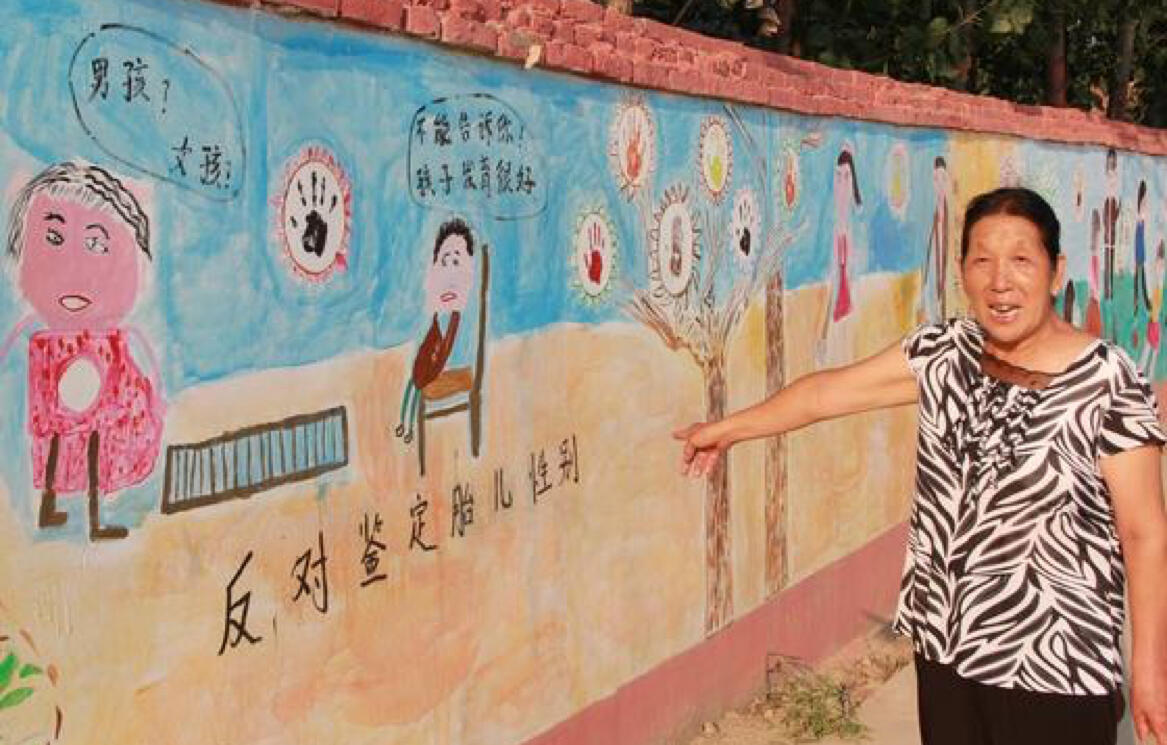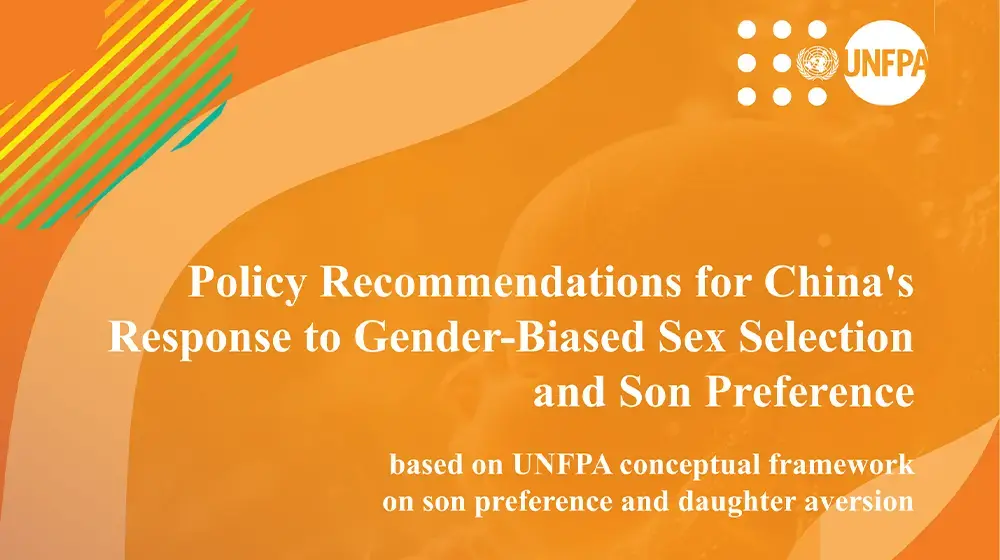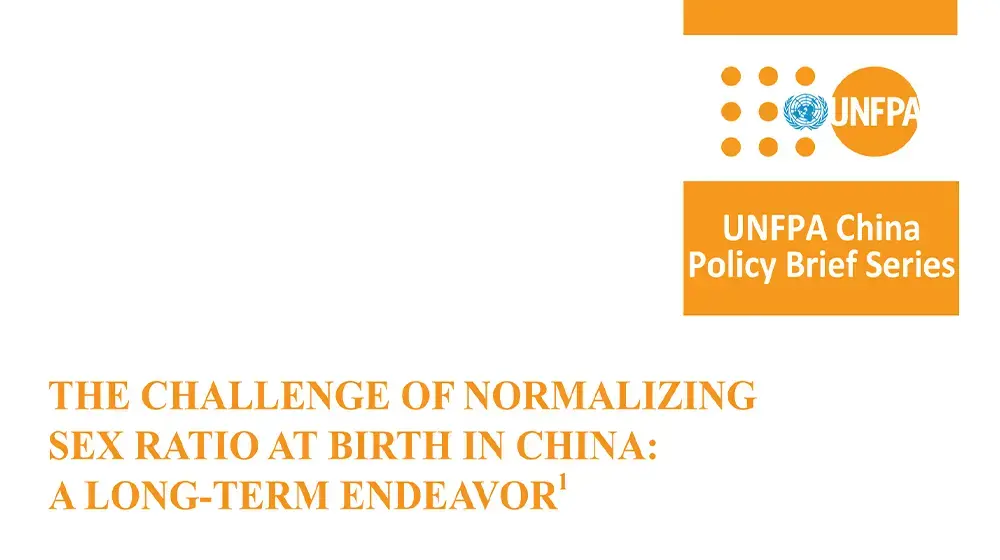ZHOUSHAN, Henan, China- After suffering pressure from her husband and father-in-law, Qiaofang eventually managed to have a son. The young mother already had two beautiful girls, but in China a combination of strong traditional values and community laws can influence families and women to do almost anything to have a son.
Qiaofang was “lucky” and her third child was a boy. However, the decision had health and economic consequences that she is still suffering today. “If the old regulations of my village had treated girls and boys equally, I would definitely not have chosen to have another child,” she says.
Qiaofang tells her story to a group of visitors interested in learning about her small village’s experience in attempting to tackle the root causes of son preference. The case of Zhoushan is being studied by “party school” teachers who train government officials, with a hope of using the lessons learned here in other provinces with high imbalances in the sex ratio at birth (SRB), like Anhui, Jiangxi and Shaanxi.
Identifying root causes of son preference
In 2008, with support from UNFPA and others, the Women Studies Centre of the Central Party School undertook a study intended to show the root causes of skewed sex ratio at birth in China.
In interviews conducted by the research team, almost all the participants agreed to two commonly perceived benefits of having boys: to secure old-age support—sons rather than daughters are expected to provide support to their parents through their lives—and to guarantee the continuity of the family line—only sons are able to carry on family names and inherit family properties.
These beliefs have shaped the cultural norms of Chinese society for thousands of years, and they are still strongly rooted today, affecting people’s behaviour in spite of many changes intended to promote gender equality at all levels.
In some rural areas discriminatory village regulations may be contributing to the skewed sex ratio at birth. For example, many villages don’t allow married or divorced women the same entitlements, such as rights to land, that other villagers enjoy.
To address this problem, village leaders in Zhoushan volunteered to take part in a pilot project to make regulations more gender equitable and change long-standing practices contributing to son-preference.
Creating the right atmosphere for changes
The first step was to create awareness and support from the villagers. With support from the local government, two weddings of men marrying into their wives’ families were celebrated as the major events in the village with the presence of prominent figures from the city including officials.
Traditionally, village marriages are patrilocal – that is, the wife moves in with the husband’s family. When it is the other way around, weddings are normally held quietly and unblessed because of the perceived lower status of women ,and lower status of families without sons.
At these two reformed weddings in Zhoushan, the brides proudly welcomed their husbands into their homes. Neighbours were pleasantly surprised by the change from the traditional custom, and both brides and bridegrooms received heart-felt congratulations from the onlookers.
Key breakthroughs achieved in the reform of village regulations in Zhoushan.
In March 2009, with the support of researchers from the Central Party School and NGO workers from Henan Community Education Research Centre, residents of Zhoushan held serious discussions on the regulations that had governed their village for many years. These discussions led to breakthroughs in promoting more gender equitable terms in the revised regulations adopted by the villagers. The key positive changes include:
- Promoting women’s participation in village affairs by mandating a minimum proportion of women in village leadership bodies.
- Promoting equal economic entitlements to anyone who is divorced or survives the death of a spouse, whether male or female.
- Promoting reform of the traditional patrilocal marriage pattern by respecting “freedom of marriage” and supporting weddings regardless of whether women are marrying into husbands’ families or vice versa, and by allowing government support to funerals of daughter-only families.
- The revised regulation also include provisions promoting diversified old-age care, reform of conventions for naming sons, and encouraging men to share household chores.
The success in Zhoushan inspired several other villages in Henan province to tackle root causes of son preference, and led to a government-supported initiative in the nearby city of Dengfeng city.
“I never realized that my school could play a key role in facilitating such radical changes,” said visitor Xiao Hong from the Shaanxi Party School. Having seen that party schools can act as a venue to promote gender awareness among both grassroots-level and senior officials, Ms. Xiao and the other observers were eager to integrate gender topics into their schools’ training courses to influence government officials. The Central Party School will continue to advocate for inclusion of gender issues in the national party school curriculum.





